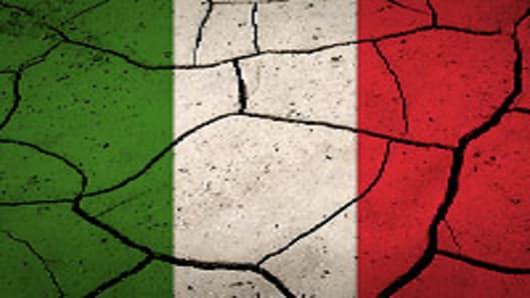The stage is being set for the battle for the heart of Italy, as warning signs about the state of the country's economy become more difficult to ignore.
Mario Monti, the country's current prime minister, and his predecessor Silvio Berlusconi featured heavily in the weekend's press, even though neither is the current favorite to win power in February's election.The redoubtable Berlusconi announced a new coalition which would make his PdLparty more likely to get into government, and claimed that he would rather serve in the less glamorous role of economy minister than the top job.
Monti poured cold water on the notion that he might serve as finance minister in a different coalition than his current centrist alliance. He also held the door open for more tax cuts.
There was comparatively little heard from the man likely to triumph over both – central left alliance leader Pier Luigi Bersani.
Whoever wins the battle of the election will find the war of restoring Italy's economy to rude health more difficult to win. While final figures for 2012 are not in yet, most economists predict that Italy's gross domestic product shrank by 1.5-2 percent over the year.
There are also the potential pitfalls of whoever wins holding a majority in the lower house of Parliament,but failing to win a majority in the Senate, because of the different electoral systems for the chambers.
Italy's economy is usually viewed as more secure than fellow Mediterranean state Spain, based on its comparatively healthy levels of household debt. However, Gilles Moec, co-head of European economic research at Deutsche Bank, argued that there is more reason to be concerned about Italy than Spain, because Italy's business sector hasn't adjusted quickly enough to the post-credit crisis world. He pointed out that operational profitability in the Italian corporate world has been declining since 1999.
The reform program brought in by Monti's technocratic government in barely more than a year of power has been welcomed internationally, but won fewer plaudits at home. And as Ben May, European economist at Capital Economics, points out, many of these reforms are set to expire and need to be replaced with formal laws.
"Even if a stable pro-reform government is formed, any boost that further reforms provide the economy are unlikely to be felt for several years," he said. "Accordingly, even if Italy avoids a period of political uncertainty in 2013, we expect economic and hence financial worries to persist."



